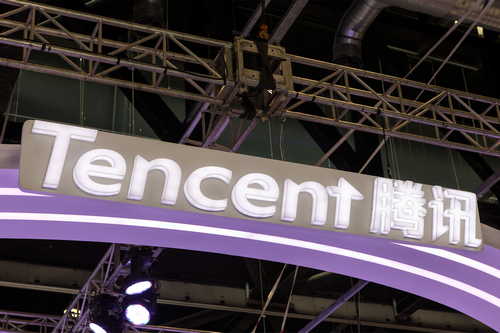The SFC has granted virtual bank licences to 12 entities so far. On the list is Infinium Limited, a joint venture between Tencent, Industrial and Commerce Bank of China (ICBC) and other two Hong Kong-based institutional investors.
Chinese internet giant Tencent is set to open a blockchain-based virtual bank after the Hong Kong Securities and Futures Commission (SFC) approved a new license.
Speaking at the World Blockchain Summit in Wuzhen, China on Friday, Tencent blockchain chief Yige Cai said the company’s virtual bank received the SFC’s green-light. Moving forward, the company will assemble a team to support the blockchain-based banking platform, according to Chinese media site Sina Finance.
“Hong Kong’s new regulations and supervision on digital assets transactions validates the importance of blockchain technology and digital assets, which is good news for the whole industry”, Cai said in his speech at the summit.
Tencent renamed Infinium to Fusion Bank in July after it received the license in May.
Cai did not disclose further details about the virtual bank, while stressing Tencent’s existing blockchain projects, including the offering of a supply chain financing for global fast food chain restaurant McDonald’s, according to the report.

According to another report, Cai is currently leading the consortium blockchain group out of the three blockchain development groups in Tencent. The other two are responsible for blockchain infrastructure and its blockchain-based cloud services, respectively.
Other companies include Alibaba’s fintech arm Ant Financial and SC Digital Solutions Limited, whose 65 percent stake is owned by Standard & Chartered Bank.
The SFC published details about its new licensing system to regulate virtual asset transactions on Wednesday, creating a similar framework to the one overseeing securities brokers.
Tether to File Motion to Dismiss Class Action Lawsuit Based on NYAG Claims
Tether has released a letter of intent saying that it plans to file a motion to dismiss the lawsuit that claims it manipulated the crypto market.
The class action lawsuit seeks retribution for damages of more than $1 trillion. It’s based on an allegation made by the New York Attorney General’s office in April that USDT was not backed 1:1 by U.S. dollars and a study published by professors at the University of Texas at Austin alleging that a single account used USDT to drive up half the price of bitcoin’s 2017 surge.
The letter, sent to the U.S. District Court in the Southern District of New York, claims that the plaintiffs’ lawsuit ignores a subsequent version of that academic paper where the authors withdrew one of its central allegations – that trading patterns reveal the issuance of unbacked Tethers.
Last week, in a statement, Tether described the revised paper as “a watered-down and embarrassing walk-back” of the first version. As for its reserves, the company also points to the Transparency section of their website that shows $4.5 billion in assets, with a $100 million cushion above its liabilities.
In the letter, Tether also claims that the plaintiffs could not prove Tether and Bitfinex, the exchange that issues Tethers, were responsible for the transactions that occurred or that the traders actually suffered injury from the market crash.
The letter also refuted claims that Tether had monopoly power over the stablecoin market, had participated in racketeering, and committed common law fraud among other allegations.
The original lawsuit, filed by David Leibowitz, Benjamin Leibowitz, Jason Leibowitz, Aaron Leibowitz and Pinchas Goldshtein, was filed by Vel Freedman and Kyle Roche – the lawyers who won a federal case against Craig Wright. Bitfinex, Tether, Digfinex and current executives; former chief strategy officer Philip Potter; and payment processor Crypto Capital are named as defendants in the case.


